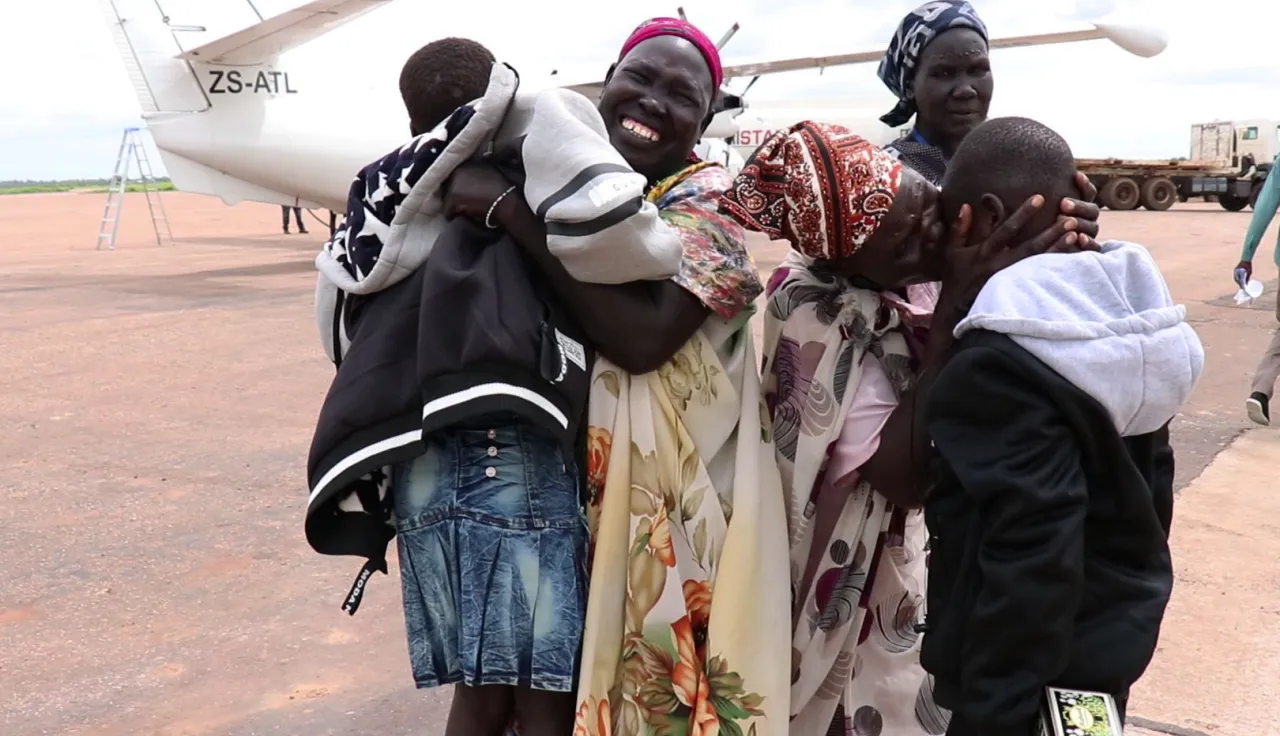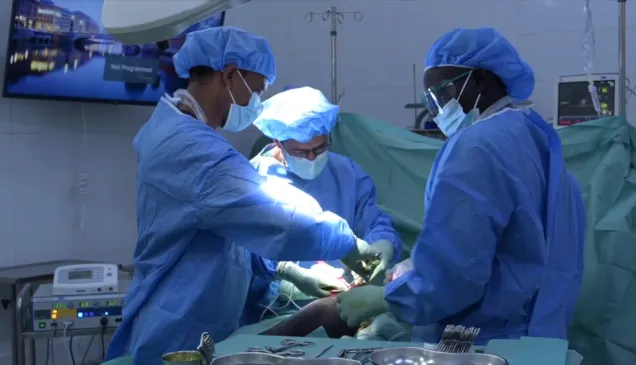South Sudan: Bringing family separation to an end

Facts and figures: January – September 2018
Imagine you are three years old, playing outside with your older brother. All of a sudden everything is confusing: people running, in panic, screaming, gunshots. Your brother grabs your hand and you both start running with everyone else. You travel for hours by foot until you reach a village. You are scared, hungry, tired and lonely. Your parents are nowhere to be found. You don't see them again.
This is only one of thousands of families in South Sudan who have been separated over decades by war and violence. Lots of people remain missing, but many others have found answers. For these children, the story has a happy ending: after four years apart the International Committee of the Red Cross (ICRC) was able to bring them back to their mother.
Around the world, people affected by violence, disasters or migration are often separated from their families. The ICRC, along with the National Red Cross and Red Crescent Societies, work to locate people and bring them back together with their loved ones. This work, known as "restoring family links" or "RFL", is one of the oldest activities of the Red Cross family.
In South Sudan, ICRC has been reconnecting people for more than 30 years through satellite phone calls and Red Cross Messages – letters that share news between family members.
Phone calls are offered in various displacement sites where the Red Cross is present as well as whenever teams carry out an activity–like a distribution of food or household items – where communication channels are inexistent. They are free, to anywhere in the world and for three minutes at a time.
"The written Messages often can be difficult to deliver," explains Rocio Escauriaza, in charge of the Restoring Family Links Program (RFL) in South Sudan. "It can take from days to months to find the receiver. If we don't find the person at the address provided we open a tracing case: details about the location of the person, how difficult is to access to the places, how many times the person has moved and how much information the old neighbors can provide, play an important role in the sought person," she added.
When possible, the ICRC physically reunites parents and minors, and another people in vulnerability, even across borders. The worldwide presence of the Red Cross Movement allow us to be able to trace and reunite loved ones in almost any country in the world. We provide transportation and accompany minors.
In some cases, our search ends with the finding that the person is detained or passed away. Even though this news is difficult to receive, it brings to the family the answers they have been looking for.
Click here more information about the RFL programme.
Highlights of our work in South Sudan between January and September 2018:
| Distributed monthly household food rations to over 370,000 people | |
| Improved access to safe drinking water for 357,000 people | |
| Evacuated 442 weapon-wounded people | |
| Provided antenatal consultations for 11,300 women and safe deliveries for 2,000 women | |
| Improved living conditions for 3,300 detainees in 13 places of detention | |
| Facilitated 36,000 phone calls between family members separated by the conflict |
For more information, read the full update of our work in South Sudan.



